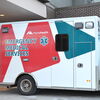Processing Your Payment
Please do not leave this page until complete. This can take a few moments.
- News
-
Editions
-
- Lists
-
Viewpoints
-
Our Events
-
Event Info
- Business Leaders of the Year Reception 2025
- Women's Leadership Forum 2025
- On the Road with Mainebiz in Bethel
- Health Care Forum 2025
- On The Road with Mainebiz in Greenville
- On The Road with Mainebiz in Waterville
- Small Business Forum 2025
- Outstanding Women in Business Reception 2025
- On The Road with Mainebiz in Bath
- 60 Ideas in 60 Minutes Portland 2025
- 40 Under 40 Awards Reception 2025
- On The Road with Mainebiz in Lewiston / Auburn
- 60 Ideas in 60 Minutes Bangor 2025
Award Honorees
- 2025 Business Leaders of the Year
- 2024 Women to Watch Honorees
- 2024 Business Leaders of the Year
- 2023 NextUp: 40 Under 40 Honorees
- 2023 Women to Watch Honorees
- 2023 Business Leaders of the Year
- 2022 NextUp: 40 Under 40 Honorees
- 2022 Women to Watch Honorees
- 2022 Business Leaders of the Year
-
-
Calendar
-
Biz Marketplace
- News
- Editions
- Lists
- Viewpoints
-
Our Events
Event Info
- View all Events
- Business Leaders of the Year Reception 2025
- Women's Leadership Forum 2025
- On the Road with Mainebiz in Bethel
- Health Care Forum 2025
- On The Road with Mainebiz in Greenville
- + More
- On The Road with Mainebiz in Waterville
- Small Business Forum 2025
- Outstanding Women in Business Reception 2025
- On The Road with Mainebiz in Bath
- 60 Ideas in 60 Minutes Portland 2025
- 40 Under 40 Awards Reception 2025
- On The Road with Mainebiz in Lewiston / Auburn
- 60 Ideas in 60 Minutes Bangor 2025
- - Less
Award Honorees
- 2025 Business Leaders of the Year
- 2024 Women to Watch Honorees
- 2024 Business Leaders of the Year
- 2023 NextUp: 40 Under 40 Honorees
- 2023 Women to Watch Honorees
- 2023 Business Leaders of the Year
- + More
- 2022 NextUp: 40 Under 40 Honorees
- 2022 Women to Watch Honorees
- 2022 Business Leaders of the Year
- Nomination Forms
- Calendar
- Biz Marketplace
High court takes up medical marijuana case with workers' comp implications
 Photo / Tim Greenway
Marijuana growing at Wellness Connection of Maine for use in medical treatments. In a case with potential precedent-setting implications for Maine businesses, the state's highest court is taking up a case involving the question of whether state law requires workers' compensation insurance to pay for a former Madawaska mill worker's medical marijuana expenses.
Photo / Tim Greenway
Marijuana growing at Wellness Connection of Maine for use in medical treatments. In a case with potential precedent-setting implications for Maine businesses, the state's highest court is taking up a case involving the question of whether state law requires workers' compensation insurance to pay for a former Madawaska mill worker's medical marijuana expenses.
In a case with potential precedent-setting implications for Maine businesses, the state’s highest court is taking up a case involving the question of whether state law requires workers’ compensation insurance to pay for a former Madawaska mill worker’s medical marijuana expenses.
The Bangor Daily News reported that the Maine Supreme Judicial Court is set to hear arguments in the case involving a 58-year-old Madawaska man who in 2015 sought reimbursement for medical marijuana prescribed for back pain stemming from a back injury in 1989 when he was working at what is now Twin Rivers Paper Co.
The newspaper reported that in 2015 the Maine Workers’ Compensation Board ordered a third-party company that administers Twin Rivers’ insurance plan to reimburse the man for medical marijuana costs that his lawyer says were as much as 80% lower than the cost of opioid-based prescription painkillers.
Attorneys for the mill and third-party company appealed the decision, stating that an insurer can’t be ordered to pay for marijuana since it is illegal under federal law, which could put insurance companies at risk of federal prosecution for reimbursing people for purchasing a drug deemed illegal by the U.S. government if not the state of Maine.
The Madawaska man’s lawyer argued that medical marijuana would be covered under a clause in the state’s workers’ compensation law specifying that workers injured on the job are entitled to “reasonable and proper medical, surgical and hospital services, nursing, medicines, and mechanical, surgical aids, as needed, paid for by the employer.”









Comments